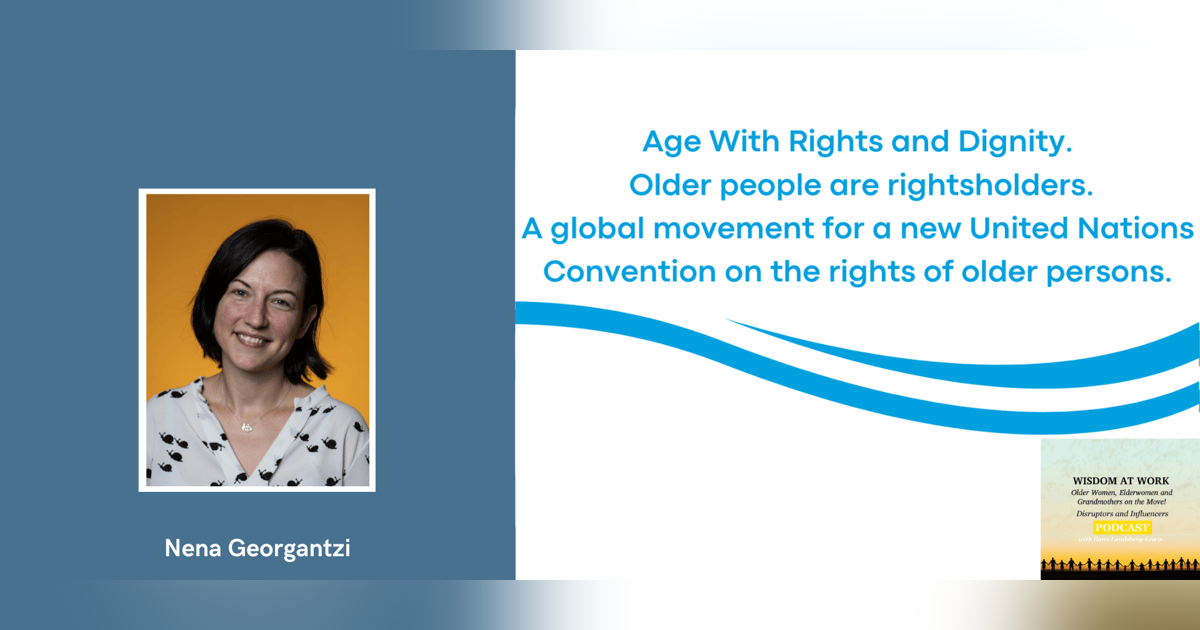Nena Georgantzi: "Where change happens, is really on the ground... governments get involved in the Convention when they hear national actors, citizens...requesting it"

Welcome! This is ilana Landsberg-Lewis, your host for the Wisdom at Work podcast: Elderwomen, Older women and Grandmothers on the Move!
What follows is a special and exciting 10-part series... 'Age With Rights and Dignity' - 10 interviews in which we will hear from older and younger advocates from different corners of the world. These committed champions and advocates will share with us why they care about the rights of older persons, and what they are doing to help bring a new United Nations Convention on the rights of older persons into being - for you and me, no matter how old we are now!
What follows is a special and exciting 10-part series... 'Age With Rights and Dignity' - 10 interviews in which we will hear from older and younger advocates from different corners of the world. These committed champions and advocates will share with us why they care about the rights of older persons, and what they are doing to help bring a new United Nations Convention on the rights of older persons into being - for you and me, no matter how old we are now!